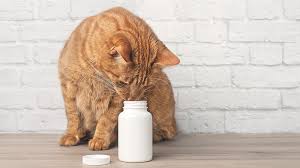The animal drug compounding market is experiencing remarkable growth, with projections indicating a substantial increase from USD 2,315.23 million in 2023 to an estimated USD 5,025.23 million by 2032, reflecting a compound annual growth rate (CAGR) of 7.66%.The animal drug compounding market is a critical yet often overlooked segment within the broader veterinary pharmaceutical industry. Compounding refers to the process of creating customized medications by combining, mixing, or altering ingredients to meet the specific needs of an individual animal. This practice is essential when commercially available drugs are not suitable due to dosage requirements, allergies, or other unique needs of a patient. As pet ownership continues to rise globally and veterinary care advances, the demand for compounded animal drugs is increasing, driving growth in this specialized market.
Browse the full report at https://www.credenceresearch.com/report/animal-drug-compounding-market
Market Overview and Growth Drivers
The global animal drug compounding market has witnessed significant growth in recent years, and this trend is expected to continue. Several factors contribute to this expansion, including the increasing pet population, heightened awareness about animal health, and the growing demand for personalized veterinary care. Additionally, the rise in chronic diseases among pets, such as arthritis, cancer, and diabetes, necessitates the use of compounded medications tailored to the specific health conditions of individual animals.
One of the key drivers of this market is the limitation of commercially available veterinary medications. Often, these drugs do not come in appropriate dosages or forms for specific animals, leading veterinarians to rely on compounding pharmacies. For instance, a large dog may require a higher dosage of a medication than what is available in standard formulations, or a cat may need a drug in a flavored form to ensure compliance. Compounding allows for such customization, enhancing the efficacy and safety of treatments.
Regulatory Landscape and Challenges
The regulatory environment for animal drug compounding varies significantly across regions, which presents both opportunities and challenges. In the United States, the Food and Drug Administration (FDA) regulates compounded animal drugs under the Animal Medicinal Drug Use Clarification Act (AMDUCA). While compounding is allowed, it must be done under strict conditions, primarily when no FDA-approved drug is available in the required form or dosage.
However, the lack of standardized regulations globally poses a challenge for market players. In some regions, the absence of clear guidelines leads to variability in the quality of compounded medications, which can affect both efficacy and safety. Moreover, compounded drugs do not undergo the same rigorous testing as FDA-approved medications, leading to concerns about their consistency and reliability. This regulatory ambiguity can limit market growth, as veterinary professionals and pet owners may hesitate to use compounded medications due to safety concerns.
Market Segmentation and Key Players
The animal drug compounding market can be segmented by product type, application, end-user, and region. By product type, the market includes anti-infective, anti-inflammatory, and other drugs, such as those used for pain management and behavioral disorders. The application segment is divided into companion animals, such as dogs, cats, and horses, and livestock, including cattle, poultry, and swine.
Companion animals represent the largest segment of the market due to the rising trend of pet humanization, where pets are increasingly considered part of the family, leading to greater willingness among owners to invest in their healthcare. Within this segment, dogs and cats are the primary recipients of compounded medications, driven by their prevalence as pets and the variety of health issues they face.
Future Prospects and Market Trends
The future of the animal drug compounding market looks promising, with several trends likely to shape its trajectory. The increasing adoption of telemedicine in veterinary care is expected to boost demand for compounded medications, as remote consultations often require the delivery of customized treatments. Additionally, advancements in pharmaceutical technology, such as the development of more precise compounding techniques and the use of better flavoring agents, are likely to enhance the appeal of compounded drugs.
Moreover, as regulatory bodies continue to refine their guidelines, the market could see improved standardization and quality assurance, making compounded drugs more reliable and widely accepted. This, coupled with the growing focus on animal welfare and the rising prevalence of chronic diseases in pets, is expected to sustain the market’s growth in the coming years.
Key player:
- WEDGEWOOD PHARMACY
- Vimian
- Custom Med Compounding Pharmacy
- Central Compounding Center South.
- Akina Animal Health
- Wellness Pharmacy of Cary.
- Miller’s Pharmacy
- Triangle Compounding.
- Davis Islands Pharmacy and Compounding Lab
Segmentation:
By Animal Type
- Companion Animals
- Dogs
- Cats
- Others
- Livestock Animals
By Product
- Anti-infective Agents
- Anti-inflammatory Agents
- Hormones & Substitutes
- CNS Agents
- Others
By Route of Administration
- Oral
- Injectable
- Topical
- Others
By Dosage Form
- Suspensions
- Solutions
- Capsules
By Regional
- North America
- US.
- Canada
- Europe
- UK.
- Germany
- France
- Italy
- Spain
- Rest of Europe
- Asia Pacific
- Japan
- China
- India
- South Korea
- Australia
- Rest of Asia Pacific
- Latin America
- Brazil
- Mexico
- Rest of Latin America
- Middle East & Africa
- South Africa
- Saudi Arabia
- Rest of Middle East & Africa
Browse the full report at https://www.credenceresearch.com/report/animal-drug-compounding-market
About Us:
Credence Research is committed to employee well-being and productivity. Following the COVID-19 pandemic, we have implemented a permanent work-from-home policy for all employees.
Contact:
Credence Research
Please contact us at +91 6232 49 3207
Email: sales@credenceresearch.com
Website: www.credenceresearch.com
